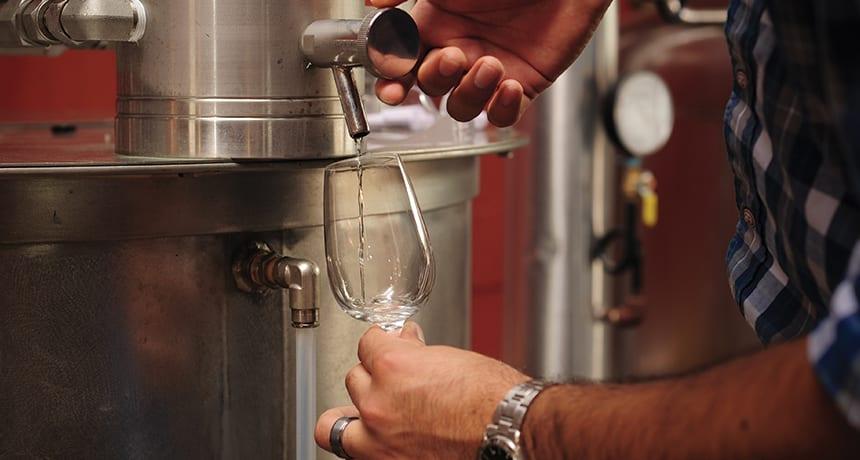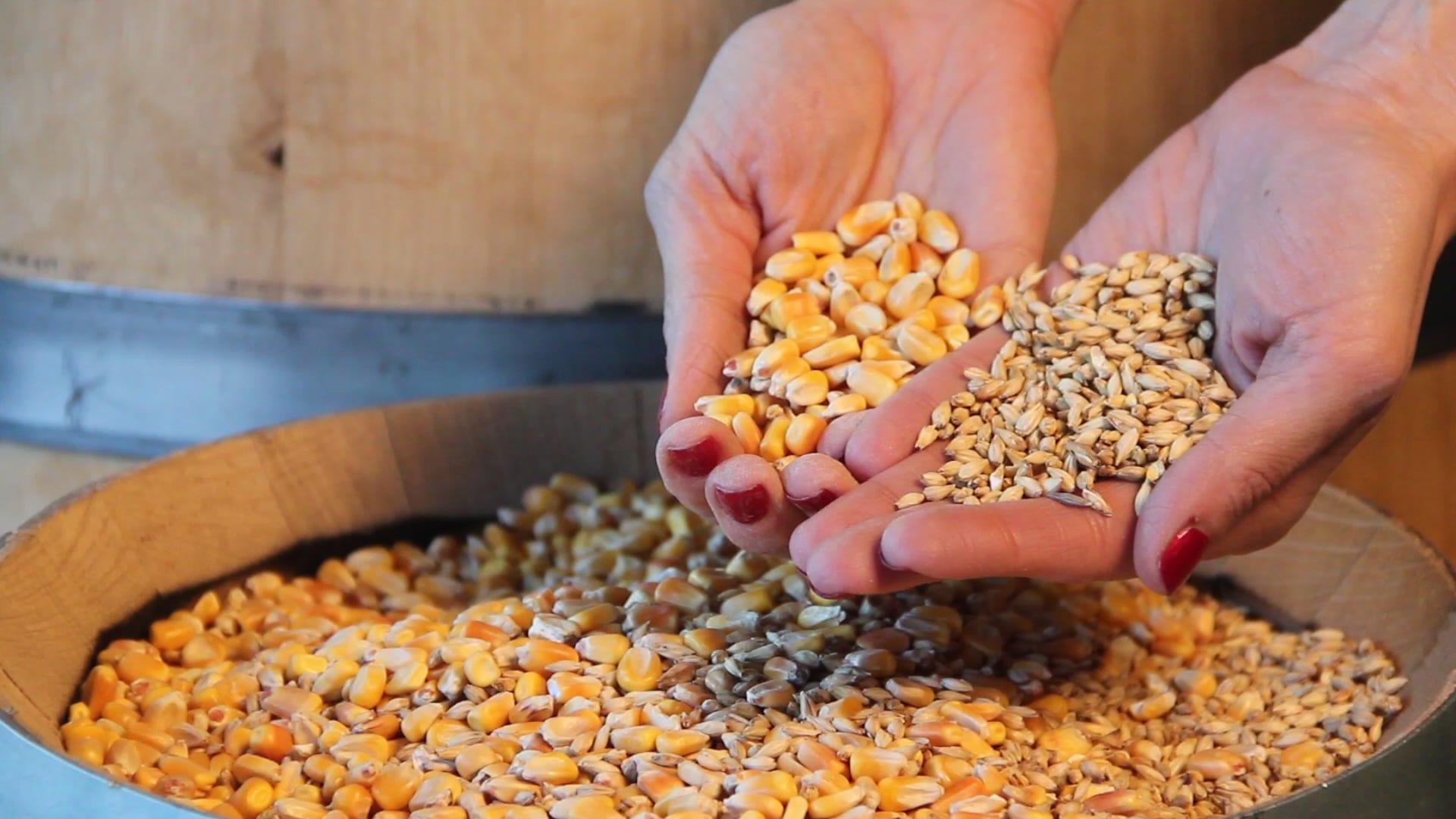
The Art of Non-Alcoholic Spirits
blog
For decades, spirits and cocktails have fostered a culture of craft, connection, and celebration. But over time, cocktail culture has evolved far beyond the buzz!

By Shelley Sackier, Director of Distillery Education, Reservoir Distillery. Story originally published to Reservoir Distillery.
I've never done a technical manual before; therefore, this genre has been entirely new to me. I was at one point informed, technically speaking, technical manuals do not fall into a "genre," Shelley.
Disappointing news.
I was also at one point informed that my other skills of fiction writing were, although appreciated, inapplicable with this work.
"What do you mean?" I'd asked, halfway through the job.
Please do not allow the machinery to have any "dialogue."
Hugely disappointing news.
In my mind, everything is conversing with anything beside it. Refrigerators hum, clocks tic, boats roar, tea kettles whistle, grills hiss, frying pans spit, drains gurgle- I could go on.
There is conversation with their purpose, with their function, and it is our choice to tune in if we desire- or maybe it's just a special type of non-worrisome derangement those of us who practice anthropomorphizing inanimate objects experience every day.
So, okay, the mash tuns, the fermenters, the stills, and bottling equipment will not be engaged with any discourse. Fine.
Also, no need to "set the scene."
Wait. What? No "Once upon a time"? No "In a galaxy far, far away"?
No.
No, "Imagine if you can, a farm field in Virginia filled with rows of waving grain. Corn so tall, so yellow, so sweet. Wheat so soft, so feathery, so-"?
No. Also, just list the manufacturer of each piece of equipment. No need to give colorful backstory that creates a uh… biography for them.
Damn. But the still is an old copper Armagnac pot which surely, if you'd allow me to research, has the most fascinating history, connecting it to a village in Gascony, and likely to some illicit brandy making where people's lives were at risk for defying the king's orders and skirting around the excise men, right?
No. Louis XVI died in 1793. The still was made in 2006. Write that down.
No excise men?
*insert cold stare here*
Fine. Hard facts only.

It has been an arduous road to travel. It has been serial numbers, maintenance schedules, standard operating procedures, operator responsibilities, quality controls, ingredient specification sheets, safety protocol, system malfunction detection. It has been measurements, sampling data, testing methods, recording methodology, and out of the realm of tolerance identification.
No language describing the invention of any equipment, the trials and tribulations of the inventor, the recognition, the accolades, the race between rivals to patent first, to reach the market, to make a name and reap rewards. No timeline of history, the tales of great machinery malfunction and mishaps that caused strife, or injury, or daresay… death. Nope. Just operator files.
It's ‘if blank, do blank.' Or ‘when this, then this.' It's ‘measure now, record here.' There's no beginning, middle, or end. It is not a story, not a narrative, no plot. None of the machinery barely scrapes by, screeches to a halt, or belches out for attention.
The technical manual is meant to be informative. Concise. Crystal clear. It is meant to provide a "just in case" scenario for an event like a catastrophic pandemic wiping out all previous operators' ability to fight through throngs of apocalyptic zombies to appear at the facility, allowing any stranger to eventually walk in off the street, discover the book and easily, effectively, and effortlessly pick up where we left off.
No, Shelley. It is meant to use as a teaching guide for new employees.
Yeah, that too, but my take could be plausible (I mumble quietly).

So, I study each piece of equipment. I learn its function. I define its specifications. I describe its purpose. It is thirsty work as I crawl around, beneath, above, and inside many of them. I watch them perform. I study their mechanisms. I research their optimal modes.
And I learn… they are still magical.
I learn it from listening to the operators as they describe their years of experience working with each station. The grain will stubbornly clump and ball if you don't chase it with the paddle in the cooker. It likes to hide right in that corner. If you don't clamp down the hose securely, the impellor pump turns into a raging snake that'll spit hot mash on every square inch of the production room floor. You see that steam rising from the strip still's parrot spout? We call that the dragon's breath.
I did find a story. The story of waking up the yeast before releasing it into its comforting, warm bath, of performing the tightly timed choreography between pieces of machinery as they demanded immediate attention to avoid calamity, of discovering that the general consensus was for many of the processes you just had to feel it, smell it, taste it, gauge it. The machinery had its tells, and a good operator was sensitive to them and could anticipate results because of the accumulated years of a bonding relationship.
Making whiskey requires procedural care, yes. It's a recipe. It's a step by step adventure that when timed perfectly churns out a salable product. But to me, and to others, the machinery is responsible for the alchemy, the head-spinning potions, the conjuration that leads grains to glass, this honeyed, headying elixir. But the technical manual will not reveal that magic. The technical manual will not even hint at it. The technical manual conceals the story.
Except it's there. We just don't capture it within the pages that keep the secret safe. It is for others to read between the lines, to unearth the buried story within it.
If they find it after the zombie apocalypse.
Written by Shelley Sackier, Director of Distillery Education, Reservoir Distillery. Story originally published to Reservoir Distillery.

blog
For decades, spirits and cocktails have fostered a culture of craft, connection, and celebration. But over time, cocktail culture has evolved far beyond the buzz!

blog
Those that are familiar with the process of crafting distilled spirits may also be familiar with the 10 common congeners that are created during fermentation, and honed during the distillation run. Each congener has its own distinct personality, rendering unique tastes and aromas to the finished spirit.

blog
So, you want to start distilling with freshly milled grain. Maybe you're tired of paying top dollar for the pre-milled stuff from the malt distributor, and you're ready to invest in the quality, efficiency, and bulk pricing that comes with milling your own whole grain. But where do you start?